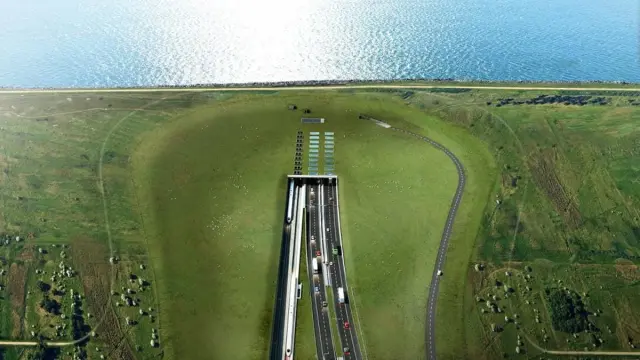Chile's advance in its own physical connection with the Great Island of Tierra del Fuego exposes half a century of Argentine strategic neglect . While Norway technically endorses the feasibility of crossing the Strait of Magellan through a tunnel in Primera Angostura, Argentina continues to postpone compliance with its own Law 26,776, which in 2012 declared the physical integration between the continental national area and the insular area of Tierra del Fuego a "state policy." This case demonstrates how the lack of continuity in sovereign projects cedes geopolitical advantages to its neighbor.
The announcement by Norwegian experts supporting the feasibility of a tunnel under the Strait of Magellan, between Punta Delgada and Bahía Azul, revives a debate that has spanned five decades of back and forth in Argentina. The paradox is evident: Chile is moving forward with a project whose financial sustainability, according to calculations by the Popular Federation of Transport (FePoTra), will depend 85% on Argentine traffic, while the country that historically promoted the connection (Argentina) has yet to implement its own territorial integration law.
The first Argentine projects date back to 1973, when representatives Ernesto Manuel Campos and Esther Fadul de Sobrino introduced a resolution to link Río Gallegos with San Sebastián, warning about the logistical costs of relying on Chilean ferries and, above all, the loss of sovereignty. This led to the implementation of a feasibility and cost assessment project for a crossing through the eastern mouth of the Strait of Magellan.
The dictatorship and democratic alternation shelved successive initiatives until Law 26.776, approved unanimously in 2012, established the continental-island connection as a national priority.
However, its implementation remained a dead letter: despite the announcement in 2015 of the creation of a $100 million trust fund for studies (during Cristina Fernández's second administration), progress was never made with the necessary solvency and determination to guarantee its own maritime connection.
Chile capitalizes on the opportunity
According to an article published by La Mañana de Neuquén, Chile's comparative advantage is revealed: its project in the Primera Angostura requires only 3.7 km of tunnel—compared to the 40 km on the Argentine side—with favorable geology (50 m depth, stable rock) and Norwegian support, a country with 40 operating underwater tunnels. The governor of Magallanes, Jorge Flies, is already seeking initial financing ($100 million) and is proposing a mixed model, similar to the one used in Norway to connect remote islands with low traffic.

For Argentina, the implications are serious:
- Logistical dependence: 70% of current barge traffic is Argentine, but the Chilean tunnel will impose tolls and cross-border regulations.
- Sovereign risk: The connection will remain in Chile's hands, affecting Tierra del Fuego's development and its role in the bicontinental Argentina.
- Programmatic failure: Three key projects from the 1970s—the Industrial Promotion Law, the Antarctic Naval Base, and the crossing through Argentine waters—only the first survived, barely.
Unfulfilled law and strategic urgency
Law 26.776 wasn't rhetorical: it mandated studies within 60 days (Art. 6) and a national highway linking Río Grande and Ushuaia (Art. 3). Neither was fulfilled. While Chile moves forward pragmatically—taking advantage of the fact that 85% of demand is Argentine—Argentina continues a pattern of disinvestment in critical infrastructure.
The Strait of Magellan Tunnel is not just an engineering feat: it mirrors two models. Chile, with a long-term vision, capitalizes on Argentina's needs; Argentina, with an erratic political class, dilutes its logistical sovereignty. The question is not whether the tunnel will be built, but who will control it—and at what cost—when the majority of traffic continues to carry Argentine license plates.
(Sources: Law 26.776, La Mañana de Neuquén, FePoTra, Norwegian Tunnelling Network)


